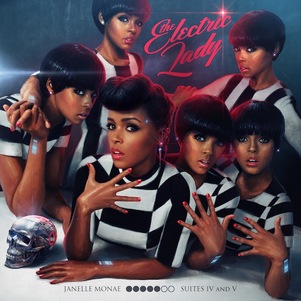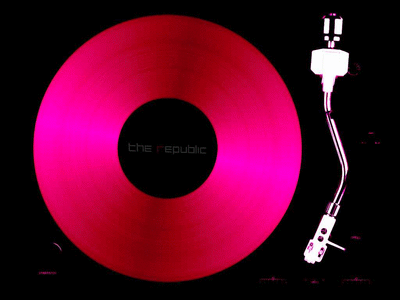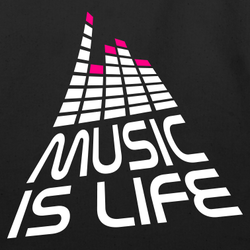
Likes: “Q.U.E.E.N,” “Electric Lady,” “PrimeTime,” “It’s Code,”“Victory,” “Sally Ride”
Dislikes: “What an Experience”
Overall: A must buy, for anyone who enjoys great quality music, lyrics, and vocals.
Although this is only her sophomore album, many doubts, as well as hopes, were invested in Janelle Monae’s ability to top the musical masterpieces that were her debut album “The Archandroid” and EP “Metropolis: The Chase Suite,” both in the funk filled, R&B sci-fi series she created. The new “Electric Lady” goes beyond satisfying and meeting the bar from her previous releases and ultimately pushes her vocal, lyrical and musical capabilities to unfathomable heights. If you’re wondering what the “hype” around Janelle Monae is, please understand that it is not as much about her being “different” as it is for her being mission-driven and immensely talented all in one cohesive package. This album showcases this in a very boisterous way; full of live instruments and constant genre and tempo changes, “Electric Lady” is a subliminal storyline about Janelle Monae and Cindi Mayweather (a fictional alpha-platinum 9000 android who was programmed to be the ultimate entertainer, using computer codes to implement everything that has been pleasing and successful to the music industry in the past). The first remarkable part of this album is that she took the common criticism from “The Archandroid” that many people (including J.Says herself) felt detached and dejected from the songs and as if the concepts and lyrics were purposefully going over their heads, and flipped it into a positive. “Givin Them What They Love” (featuring Prince, yes, THE Prince) pretty much sets the scene for what she’s about to do. The song itself is far from what you’d expect to hear from the duo, but has an interesting country- meets-rock feel to it. The songs that follow are probably the most commercial Monae has ever created (which is, in this context, a GOOD thing). Using simple lyrics to imply dual meanings is a skill Monae masters, especially on “Q.U.E.E.N,” featuring Erykah Badu, and the title track, featuring Solange Knowles.
Vocally, Monae is still in her prime, soaring into her chest voice more than she has before, while maintaining a virtually perfect technique and being able to switch her voice textures at the drop of a dime. She allows her range to flutter to her top head voice, down to her low alto, amidst the thumping 808s, electrifying synths, funky guitars and brass that appear throughout the suites. Her fearlessness in vocal experimentation in itself is entertaining to hear, as she emotes over the music and yet, she still manages to sometimes come off as robotic or formulaic in this approach. She is more uninhibited, nonetheless, as she raps in 3 songs (“Q.U.E.E.N,” “Electric Lady” & “Ghetto Woman”) focusing on socially conscious themes, as the music seems to add to her overall energy. Song-wise, the album is solid; every song has a purpose and its own texture that contributes to the whole. Songs like “It’s Code” and “Victory” tug at her R&B roots, while “PrimeTime”( featuring Miguel), “We Were Rock &Roll” and “Givin Em’ What They Love” accentuates her rock & roll foundations. “Ghetto Woman” sounds like one of Stevie Wonder’s forgotten “Songs in the Key of Life” (from the second half, to be exact) tracks and tunes like “Look Into My Eyes,” “Dorothy Dandridge Eyes” (featuring Esperanza Spalding) and “Can’t Live Without Your Love” allow her smooth-like-honey voice to send the listener to ecstasy. The deluxe edition contains two remixes, one additional original song and a beautiful acoustic, slowed down cover of “I Want You Back” by The Jackson 5. The “Electric Lady” remix, featuring Big Boi and Cee-lo Green, is impeccable and “Hell You Talmbout” could have easily been on the standard version’s tracklist. Another plus is that among all of the features on the album, Ms. Monae doesn’t allow the album to feel cluttered and dependent upon these collaborations. Solange only sings background vocals (which are PHENOMENAL), Erykah Badu has space for a verse, but it comes off as spastic adlibbing and Prince’s sung part is short lived, but he plays several guitar parts throughout the song. It works because it allows the artistic nature of every featured artist to thrive and mesh with Ms. Monae’s music and play a part in the progression of the story without seeming random.
The structure of this album is also more cohesive than the “ArchAndroid” (although that was the point, as described in the liner notes of that album), and shows the social climate of Metropolis’ Wonderground Society. Her allusions to racism, the gay rights movement and sexism are subtle, yet the most effective, all the while the plot of the series is optional for the newcomers (even though the interludes will make no sense without understanding the plot to some degree). On the surface, Suite IV focuses on Janelle having a good time, entertaining the audience, celebrating her womanhood and free-thinking, while Suite V focuses on her personal life, along with her emotional battles since her previous release. One other thing to point out about Janelle albums that always goes unnoticed is that the packaging is always part of the fun. I feel bad for people who stream/illegally download Monae’s music, because copies of these booklets don’t exist via Google image search and reading them takes away any notion that a song is “too cryptic” in nature. For one, an elusive excerpt furthering the plot of the story is always included, but in the actual credits, she states what inspired the songs. Like how “Dance Apocalyptic” is “inspired by Michael Jackson’s Glistening Jheri curl in Thriller and Bo Diddley’s Tremolo Guitar” or how “Givin Em What They Love” is “inspired by HiddenColors1&TWO and the burning big house in Django Unchained.”
Overall, the album is a must-have and will probably soon be deemed not just album of the year, but a classic. The only fault I could find in the album is that the end of both suites seemed a bit low in energy. Oh and that it’s too good. Not being biased or anything, but it’s one of those albums that you probably will listen to a couple times, then have to STOP listening to just to thoroughly enjoy the other album releases that have come out this year. Monae is clearly in a lane of her own and is maintaining her creative integrity, while opening up enough for people to fully embrace her voice, music and message. Just that is exactly what an “Electric Lady” does: she uses her voice and experience to convey her message in the threat of adversity.


 RSS Feed
RSS Feed